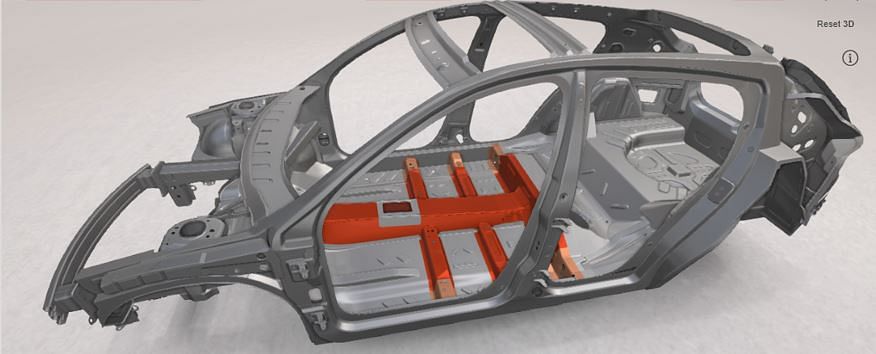ArcelorMittal and Gestamp to make low-carbon emissions steel parts
This first cooperation between a steel manufacturer and an automotive stamper paves the way for the greater use of low-carbon emissions steel in the automotive sector.
ArcelorMittal and Tier 1 automotive supplier Gestamp have successfully trialled the use of low-carbon emissions steel for use in car parts that will be used in the production of vehicles in Europe.
This first cooperation between a steel manufacturer and an automotive stamper paves the way for the greater use of low-carbon emissions steel in the automotive sector.
The two companies have signed an agreement to strengthen cooperation on sustainability, specifically in the production of low-carbon emissions steel parts, and are working closely to ensure that ArcelorMittal’s steel meets all Gestamp’s technical requirements.
In this process, Gestamp says it “has a very important role in validating the low-carbon emissions steel produced by ArcelorMittal in order to meet the standards of excellence its automotive clients need.” This challenge, the company says, is the responsibility of Gestamp’s R&D team that has developed a detailed, step-by-step procedure to validate and homologate ArcelorMittal’s low-carbon emissions steel for use in vehicle production.

Car tunnel made from Usibor 1500 with XCarb recycled and renewably produced substrate. Image: Gestamp
Using Usibor 1500 made with XCarb recycled and renewably produced substrate, Gestamp has successfully trialled the first parts (such as a car’s tunnel, and seat reinforcements) in press-hardenable steel, which is ultra-high-strength and therefore enables car manufacturers to achieve excellent weight reductions across the vehicle. XCarb recycled and renewably produced is a decarbonised product made with a very high proportion of recycled steel (scrap) in an EAF and 100% renewable electricity.
The steel used by Gestamp has a carbon footprint that is almost 70% lower than the same product made without XCarb recycled and renewably produced. These are major steps forward in Gestamp’s ESG strategy to decarbonize their supply chain and contribute to the mitigation of climate change, collaborating to make this low-carbon emissions steel project a tangible reality and therefore, more sustainable vehicles.
Speaking about the partnership between ArcelorMittal and Gestamp, Francisco J. Riberas, Executive Chairman, Gestamp, said: “At Gestamp we always work aligned with the needs of our customers in order to meet their objectives of sustainability. And it is most important for the mobility of the future that we help them to decarbonise their supply chain. True to our own ESG strategy, the R&D teams at Gestamp have verified empirically that these steels meet the customer's specifications for these parts. Based on these tests carried out, the company has defined an approval process that guarantees our customers that our validation of this steel is carried out in compliance with all the validation requirements that they request.”
Geert Van Poelvoorde, CEO, ArcelorMittal Europe said: “Decarbonising our world is the biggest challenge we have ever faced as a society, and as an industry. The scale of the challenge for steelmakers means that partnerships and collaboration are crucial for us to have a chance of succeeding – we achieve more, faster, by working with our customers and other stakeholders. Our work with our valued customer Gestamp to use our XCarb recycled and renewably produced to manufacture ultra-high strength steel to help carmakers decarbonise their supply chain is a beacon for our industry; just a few years ago, we did not think it would be technically possible to do this, but today we are on the brink of supplying low-carbon emissions steel for large-scale automotive production”.
Gestamp announced last year that it was the first Tier 1 supplier in the automotive sector to buy ArcelorMittal’s XCarb green steel certificates for the production of automotive components.
RELATED ARTICLES
Autoliv Plans JV for Advanced Safety Electronics With China’s HSAE
The new joint venture, which is to be located strategically near Shanghai and close to several existing Autoliv sites in...
JLR to Restart Production Over a Month After September Hacking
Manufacturing operations at the Tata Group-owned British luxury car and SUV manufacturer were shut down following a cybe...
BYD UK Sales Jump 880% in September to 11,271 units
Sales record sets the UK apart as the largest international market for BYD outside of China for the first time. The Seal...






 By Autocar Professional Bureau
By Autocar Professional Bureau
 24 Jul 2022
24 Jul 2022
 6019 Views
6019 Views





 Ajit Dalvi
Ajit Dalvi




